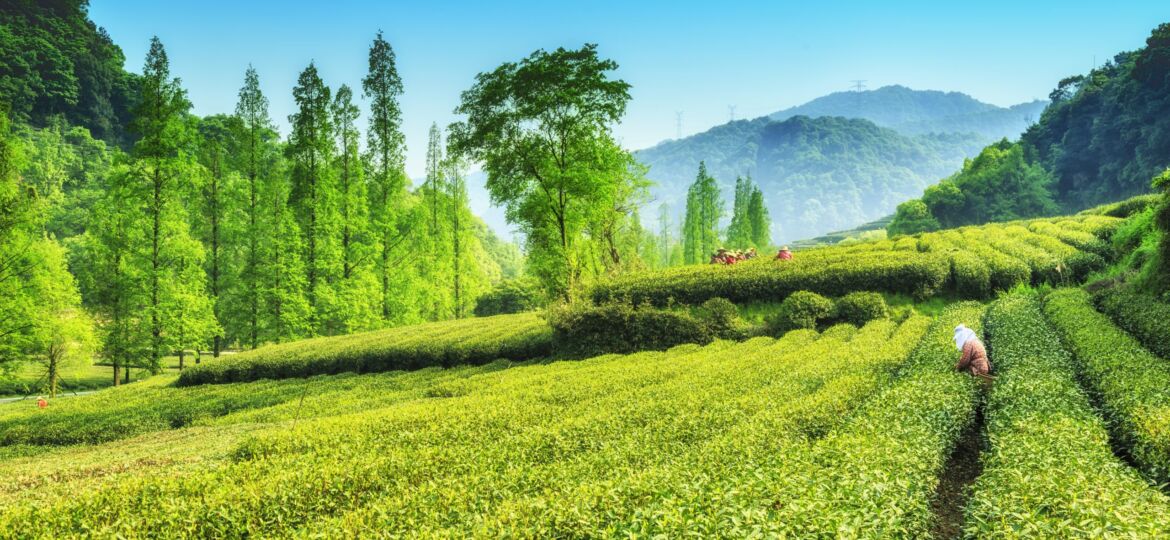
The agriculture industry in Turkey has always been a strong and developing industry for the country. Thanks to the fertile & arable lands and favourable climate, different fruits and vegetables grow in different regions of Turkey, and most of the population in the rural areas earn their income from agriculture.
Another reason for the strong agricultural industry in Turkey is dynamic, young and skilled labour force along with strong incentives by the government. Turkey’s industrial and commercial infrastructure is highly developed, and thanks to the easy access to regional markets, most of the global agri-food giants are present in Turkey, and they have important activities. They also have close relationships and successful partnerships with Turkish companies as well.
Turkey is in a perfect location in the middle of Asia and Europe as well as accessible transport opportunities to the Middle East and former Soviet countries.
Turkey is also a huge market with a population of more than 80 million, and it is considered as one of the leading countries in the agriculture industry. 5.8% of GDP in 2018 was represented by the food and agriculture sector employing 20% of the active population.
Key numbers of the agriculture industry in Turkey (2018)
- Turkey is the 2nd largest country in Europe and the 9th largest country in the world in terms of the agricultural economy.
- Turkey has the 2nd largest agricultural economy among OECD countries. (World Bank)
- Turkey is the 1st flour exporter in the world.
- Turkey has 23.2 million ha agricultural land and 5.1 million ha arable land.
- Total exportation of agricultural products is around 17.7 billion$.
- Total importation of agricultural products is around 12.7 billion$.
- Total agricultural trade volume is around 30.5 billion$.
- There are 3,076 million agricultural enterprises in Turkey.
- Three million people work in the agriculture industry.
- The agricultural GDP is around 43.2 billion$.
Thanks to abundant production in the sector Turkey is one of the most significant exporters in agricultural products in Eastern Europe, the Middle East, and North Africa region.
- Turkey is the top producer of hazelnut, apricot, fig, dried raisin, and cherry.
- Turkey is one of the top 5 producers of melon, watermelon, cucumber, lentil, pistachio, quince, sour cherry, chestnut, pepper, honey, and green beans.
- Turkey is one of the top 10 producers of apple, cotton, wheat, barley, almond, sunflower and tobacco.
Around 1700 types of agricultural products are exported to around 185 countries by Turkey.
- Turkey is the top exporter of hazelnut, dried raisin, apricot, fig, and chickpea.
- Turkey is one of the top 5 exporters of cherry, lemon, lentil, tobacco, olive oil, and chestnut.
- Turkey is one of the top 10 exporters of pepper, olive, pistachio, orange, tomato, cucumber, peach, and grape.
Digital agriculture in Turkey
According to the “Smart Agriculture Market Research” conducted by Huawei company in 2017, the value of the world smart agriculture market, which was 13.7 billion dollars in 2015, is expected to increase to 26.8 billion dollars in 2020. This means that the market is valued twice in 5 years. Leading brands of precision ag technology are investing and operating in Turkey.
European Agricultural Machinery Association (CEMA), stated in a report that there are 4,500 producers with an annual turnover of 26 billion€ in Europe, producing 450 different agricultural machines and 135,000 people are employed in this sector. According to the same report, 70% to 80% of the new agricultural equipment sold in Europe includes the precision agricultural technology component. Another point highlighted in this report is that smart agriculture practices will be the factor that will affect the agriculture sector the most until 2030 and will play a driving role in ensuring the sustainability of EU agriculture.
Turkey is Europe’s largest agricultural country, is of great importance for the economy of the country, making millions of farmers using more efficient production technology. Turkish farmers are also using technology, more and more. Devices used in every point of agriculture and livestock activities become smart. Automation systems and measurements are managed through mobile devices in all activities. Qualified data is collected in a single centre. Incorrect production methods are being changed. The soil is kept under control 24/7.
Greenhouse
Turkey’s total greenhouse area is 772,000 decares, and with this area, Turkey is the 4th country in the world and 2nd in Europe. 94% of this area is used for vegetable production, 5% is used for fruits, and 1% is used for ornamental plants.
In terms of geothermal resources, Turkey is again in an important place in the world. It comes in 7th place globally, and the country is in the 1st place in Europe.
In the greenhouse sector, there is efficient infrastructure, and with the help of technology, production is increasing. Government is also supporting the sector with advantageous incentives.
Organic Farming
Turkey has amazing opportunities for organic farming thanks to its suitable soil and appropriate technical infrastructure. The Turkish government supports organic farming with incentives, and Organic Agriculture Legislation is prepared following the EU.
Main export countries are Italy, Germany, Netherlands, France, Belgium, and the UK and the most exported products are wheat, fig, fruits, hazelnut, apricot, lentil, raisin, and chickpea. In 2018, 2.371,612 million tons of products are produced.
The agriculture industry in Turkey after Covid-19
Every industry has been affected by the Covid-19 outbreak differently. Some of the sectors were affected severely, but industries like agriculture, food, energy, transport, etc. have been experiencing positive changes globally.
Turkey is the 7th largest agricultural producer in the world and in 2018 exported to more than 190 countries a variety of 1800 products which resulted in 17,7 billion $ revenue.
According to sector experts, the effect of technology in agricultural production is already increasing day by day, but after the coronavirus epidemic, this process will undoubtedly gain even more speed. Robot power will be preferable than human power. Agroecology can also increase the efficiency of urban agriculture, thus contributing to local food safety and nutrition, especially in underserved communities. At the time of the crisis, as more and more people realize that access to locally produced food is strategic, urban food production will expand. Agroecology can increase the efficiency of urban agriculture, thus contributing to local food safety and nutrition, especially in underserved communities. At the time of the crisis, as more and more people realize that access to locally produced food is strategic, urban food production will expand.
International presence in Turkey in the agriculture industry
For long years, major agriculture-food companies have been present in the Turkish market and manufacturing in Turkey. The following companies all have offices in Turkey, and some of them also have their production facilities as well. Such as:
- Nestle: present in the Turkish market for 110 years with two manufacturing facilities and employs around 3,800 people directly.
- Ferrero: present in the Turkish market since 2013 with 7 manufacturing facilities and exporting to more than 100 countries from Turkey.
- Coca Cola: has a market share of 65% in fizzy drinks and producing 25 brands in Turkey with more than 2.500 employees in 10 production plants.
- Cargill: present in Turkey for around 60 years with more than 600 employees in 3 production facilities.
- Unilever: active in Turkey for over 100 years with 8 manufacturing facilities employing more than 5.000 employees exporting to 34 countries from Turkey.
- Mondelez: operating in Turkey since 1993, employing around 1.200 people in an 85.000 m2 production facility.


